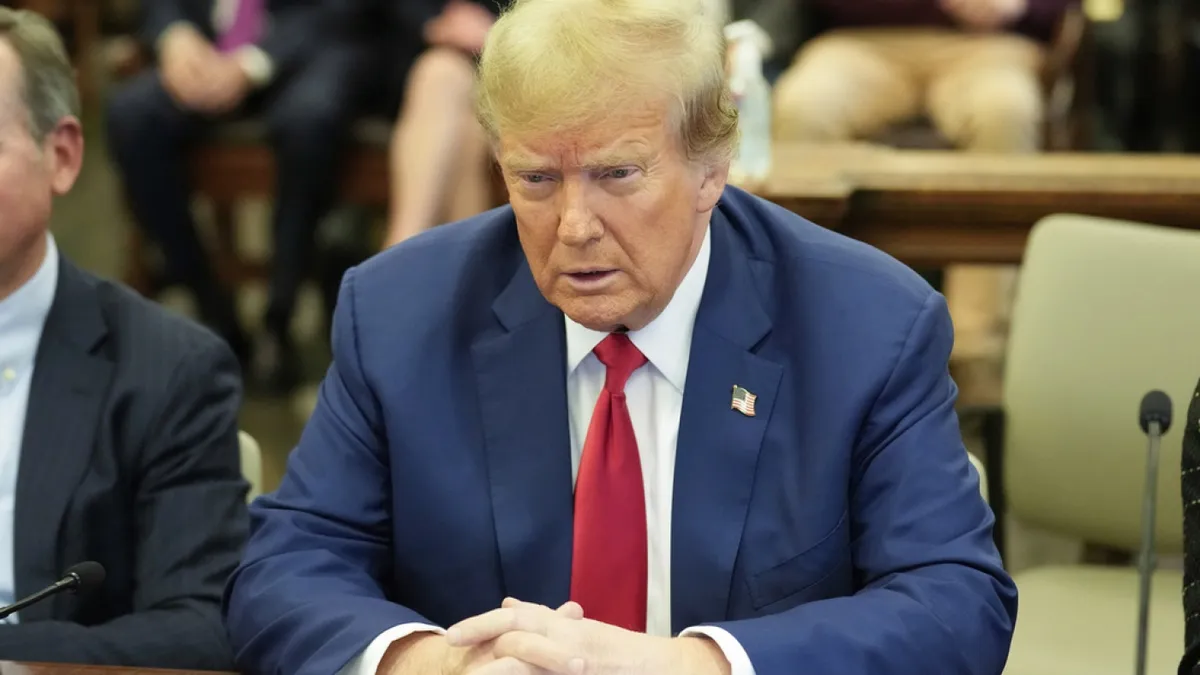
A New York appeals court made headlines on Thursday by overturning the substantial financial penalty imposed on President Donald Trump by a state judge, while simultaneously upholding a finding that he engaged in fraud by inflating his wealth over several decades. This ruling effectively spares Trump from a potential penalty exceeding half a billion dollars, although it does impose restrictions barring him and his two eldest sons from holding corporate leadership positions for a few years.
In a spirited response on social media, Trump hailed the court's decision as a "total victory." He expressed gratitude for what he described as the court's "courage" to nullify a "unlawful and disgraceful decision" that he claimed was detrimental to businesses across New York State. This ruling comes seven months after Trump re-assumed his role in the White House, marking a significant moment in his legal battles.
The ruling emerged from a sharply divided panel of five judges within New York's mid-level Appellate Division. While the judges could not reach a consensus on several aspects of Trump's appeal, a majority agreed that the monetary penalty imposed by Judge Arthur Engoron was excessive. Initially, Judge Engoron had mandated that Trump pay $355 million in penalties, a figure that, with interest, has ballooned to over $515 million. When factoring in additional penalties against other executives in the Trump Organization, including Eric and Donald Jr., the total amount claimed rises to approximately $527 million.
The appeals court expressed concerns about the punitive nature of the financial penalties. Judges Dianne T. Renwick and Peter H. Moulton articulated in their opinions that the court's disgorgement order, which required Trump to pay nearly half a billion dollars to the State of New York, constituted an excessive fine that violated the Eighth Amendment of the United States Constitution. They emphasized that while the court's injunctive relief aimed to address the defendants' business practices, the financial penalties were disproportionate.
As the appeals court dismissed the financial penalties entirely, it also provided a pathway for Trump and his co-defendants to appeal to the state's highest court, the Court of Appeals. The panel noted that Trump and his associates could seek to prolong the pause on any punitive measures pending resolution of the appeal. Interestingly, the judges issued a lengthy 323 pages of concurring and dissenting opinions, showcasing the complexity and divisiveness of the case.
Throughout the proceedings, Trump and his co-defendants have consistently denied any wrongdoing. Following a monthslong trial, Trump asserted his innocence, branding the case as a "fraud on me." He has often attributed the lawsuit and its outcomes to political motivations from New York Attorney General Letitia James and Judge Engoron, both of whom he claims are operating under partisan agendas. Trump's Justice Department has even subpoenaed James for documentation related to the lawsuit, framing it as part of a broader investigation into potential civil rights violations.
In response to Trump's claims, James has accused him of "lying, cheating, and staggering fraud." Her office has yet to comment following the latest ruling. During the appellate hearings, Trump's legal team argued that his financial statements were not misleading, noting they included disclaimers and that lenders and insurers independently assessed the numbers. Despite instances of financial inconsistencies, such as exaggerating the size of his Trump Tower penthouse, Trump maintains that his financial disclosures were conservative estimates.
This civil fraud case is just one of several legal challenges looming over Trump as he campaigns for a second term. On January 10, he received a sentence in his criminal hush money case consisting of an unconditional discharge, keeping his conviction on record but avoiding jail time or fines. Additionally, a federal appeals court recently upheld a jury's decision that Trump sexually abused writer E. Jean Carroll, affirming a $5 million judgment against him, with Trump now seeking to have the Supreme Court review this ruling.
As Trump navigates through these legal obstacles, the implications of the appeals court's ruling will undoubtedly resonate across his business and political endeavors, shaping the narrative around his future ambitions.